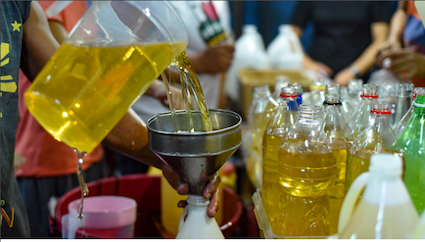Inside BENEO’s new pulse plant: pioneering sustainable protein from faba beans
India had made a commitment to reduce the amount of trans-fats in edible oils and fats to 3% by 2021 and to 2% by 2022, a year before the WHO deadline.
The World Health Organization (WHO) has launched its second progress report on Global Trans-Fats Elimination 2020. The report highlights the progress of the world towards eliminating trans-fats from global food systems by 2023, recommends strategic priorities to this end and discusses challenges and opportunities for future action.
Cardiovascular diseases are a leading cause of death globally; approximately 17.9 million people lose their lives to them annually. In India, the Coronary Heart Diseases (CHD) has seen a four-fold rise during the past 40 years. As per the latest WHO Report on Global Trans Fat Elimination 2020, almost 5 of CHD death in India is due to TFA intake.
The WHO has called for the elimination of trans fatty acids from the global food supply to prevent the rise of non-communicable diseases. It has identified this intervention as a “best buy” for low and middle-income countries i.e. a low-hanging fruit with exponential positive benefits for the population. In May 2018, it set a deadline of 2023 and released the REPLACE action framework, which serves as a roadmap to policymakers to achieve this goal.
According to Dr. Tedros Adhanom Ghebreyesus, Director-General of the WHO, “Diet-related risk factors are a major driver of preventable deaths due to cardiovascular disease. Industrially produced trans-fatty acids (TFA), which are still used in some countries as an ingredient in fried food, deep-fried food, baked goods and spreads are linked with heart disease and death. But they can be completely eliminated and replaced with healthier oils and fats without changing the taste or cost of food.”
The Chief Executive Officer of the Food Safety and Standards Authority of India (FSSAI) Arun Singhal too has recognized the health risks posed by higher content of trans-fats in foods, especially in the wake of COVID-19, which has seen people with comorbid health medical conditions suffering disproportionally. He has spoken of the need to expedite a draft regulation that will put in place mandatory upper limits on trans-fats.
India had made a commitment to reduce the amount of trans-fats in edible oils and fats to 3% by 2021 and to 2% by 2022, a year before the WHO deadline.
To this effect, a regulation limiting the amount of trans-fats in foods in 2019 has been drafted. India is one of the 11 countries with the highest trans-fat burden and should act immediately to adopt and implement best practice policies to protect its people from the health harms of this toxic chemical.
In its report, the WHO also gives detailed step-by-step implementation modules for the REPLACE action package, which give countries exact guidance on how to cut industrially produced trans-fat from their foods and save lives.

